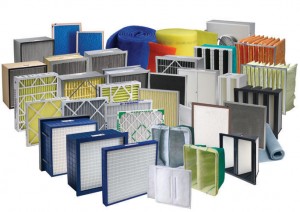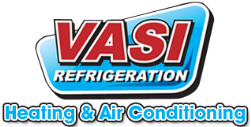Most heating and cooling systems come with air filters that need to be periodically replaced. While this should be standard practice, many homeowners forget this important component to HVAC maintenance.
Why Do I Need to Change My Air Filter?
Air filters do the hard job of trapping objects and debris before they’re able to enter your system. A dusty filter will reduce the airflow and increase the used energy by 5 to 15 percent. That means your system will have to work harder for the same level of heating and cooling. Additionally, dusty filters often lead to dirty coils, which can affect the performance of the system. Dirty air filters can also cause respiratory issues, allergies and illness, because of the circulation of bad air.
How Often Should I Change My Air Filter?
In order to keep your heating and cooling system working at peak efficiency, and to keep your home environment clean and healthy, change your air filter every three to four months. This simple maintenance can help you avoid the need for service. Replacing your air filter can go a long way toward mitigating a need for costly repairs. Some systems may need to have the filters changed as often as monthly, and you may want to do this anyway if anyone in your home has a health-related issue.
What Type of Air Filter Should I Buy?
There are a number of air filters you can choose from, depending on your individual preference and the type of system you have. Some filters block airflow, and therefore may not work as well as others.
- Electrostatic air filters—These filters rely on electricity or electronic static. They don’t block airflow to the HVAC equipment, which means it can operate without clogging. They have about a 90 percent efficiency for clean air.
- Fiberglass panel filters—You can purchase these inexpensive filters at any store. The filter traps big dust particles, but they quickly build up and cause airflow problems. Therefore, you’ll want to replace these filters frequently.
- Media air filters—These filters are reliable and cost effective, and HVAC professionals use them quite frequently. Since they have a number of fiber layers, contaminants are stopped before they make it all the way through, and airflow isn’t affected.
- Pleated air filters—Pleated air filters are similar to media filters but need to be changed more frequently. Particles land on the cover of these filters, so the particles are trapped without preventing airflow.
- HEPA (High Efficiency Particulate Air) media—These media filters remove dust mites, pollen, pet dander, household allergens and mold spores and are over 99 percent efficient
- Activated carbon air filter—Activated carbon air filters are used in buildings with heavy smells and odors. The charcoal base helps minimize the need for camouflaging the odors, but they’re not as efficient in removing particles as some other options.
Consult Vasi and any paperwork that came with your system in order to determine the right air filter for your needs. No matter which you choose replace it regularly for optimal performance.
